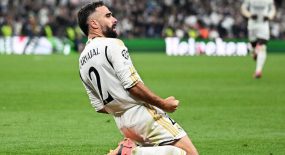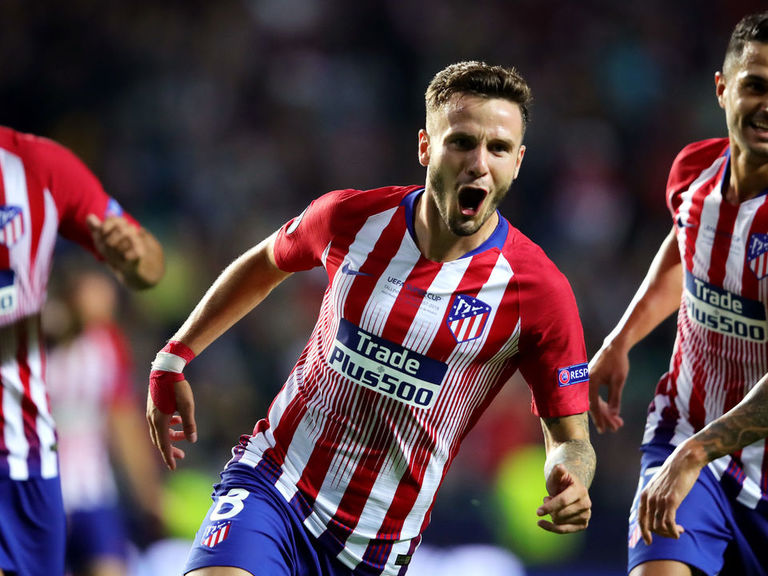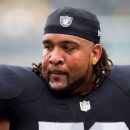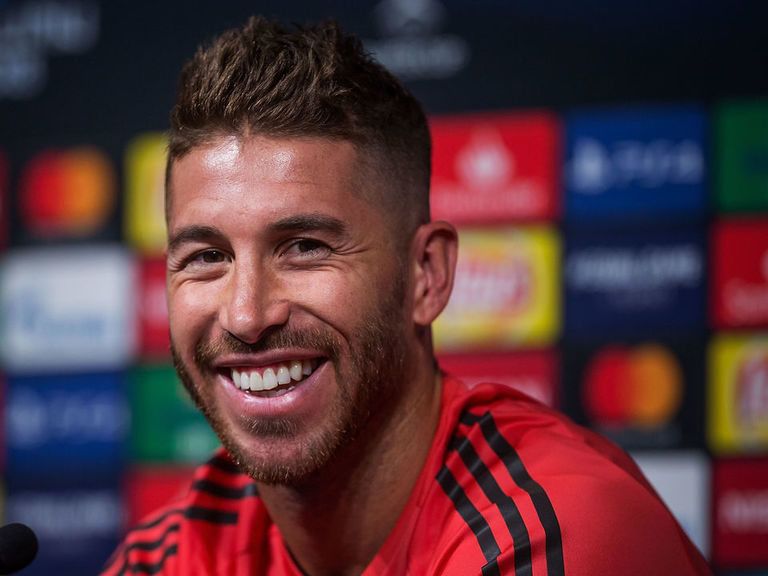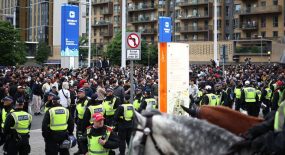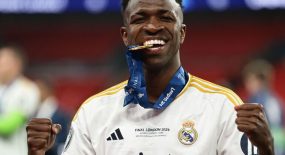NAPA, Calif. — The day after agreeing to a restructured contract, three-time Pro Bowl left tackle Donald Penn was activated from the physically unable to perform list and moved to a new position with the Oakland Raiders — right tackle.
The move could also portend first-round draft pick Kolton Miller winning the starting left tackle job.
“They talked to me about it, about trying it out, seeing what it would do, seeing how I would feel over there and I told them, ‘I’m willing to do whatever it takes to help this team win, and if you guys feel that’s going to be in the best interest of the team, I’ll do it,'” Penn said Tuesday, following his first training camp practice.
“Today felt kind of awkward and rusty, but I need time to develop. I don’t know if that’s going to be a permanent thing or not yet, but it is something we’re testing out and I told them I’m all for it. We’ve got a young kid over there [Miller] that’s doing a lot of good things.”
Penn, who received a two-year, $21 million extension after a 26-day holdout last year, reportedly took a small pay cut this year to get some guaranteed money next season.
Per ESPN Stats & Information, Penn was due base salaries of $6 million in each of the next two seasons, with a guaranteed $3 million this season and a $300,000 workout bonus based on six weigh-ins, with $50,000 per weigh-in.
And under the parameters of said contract, he was due a $1 million roster bonus on the fifth day of the league year in 2019 and the remaining $5 million of his salary became fully guaranteed if he had 75 percent playing time in 2018.
Penn, who had been rehabbing from Lisfranc surgery on his right foot in December that ended his consecutive starts streak at 170, said the Raiders mentioned the possibility of a position switch to him during “negotiations with the contract stuff” over the past week.
“And then this morning, they told me that they wanted me to try it out today and see how it goes,” Penn said. “I told them I was going to give my best effort and go out there and try to be Donald Penn over there.”
The only other time Penn played right tackle was in an emergency situation in the 2016 season opener at New Orleans, after Menelik Watson and Vadal Alexander were lost to injury.
Per Pro Football Focus, Penn played 24 snaps at right tackle that day and in 18 pass-block snaps there, he did not allow a quarterback pressure.
“It was tough,” Penn said. “I’m glad we won. I was out there battling, holding on for dear life. It was tough.”
Raiders quarterback Derek Carr said it was strange seeing the protector of his blind side now lined up in front of him.
“It was a little different, but that’s why you have good players,” Carr said Tuesday. “That’s why you add good players to your team, so when things happen you can put guys in different spots.”
Penn, 35, said he had been studying new coach Jon Gruden’s playbook while rehabbing, but all as a left tackle. And during practice, Penn found himself lining up next to left guard Kelechi Osemele and also lined up at right tackle in his left-hand stance.
“We’ve got a good thing going here,” Penn said. “I just want to help us win. I’m not playing too much longer. I just want to win, really. So if this is going to help us win, I’m all in for it.
“Kolton, me and Kolton, we’re developing a good friendship. I want to have him ready so when he goes out there he can succeed. It’s not like I’m over here, like jealous or mad. I’m trying to help the kid out so the kid can be as good as possible because it’s going to help us out as a team.”






